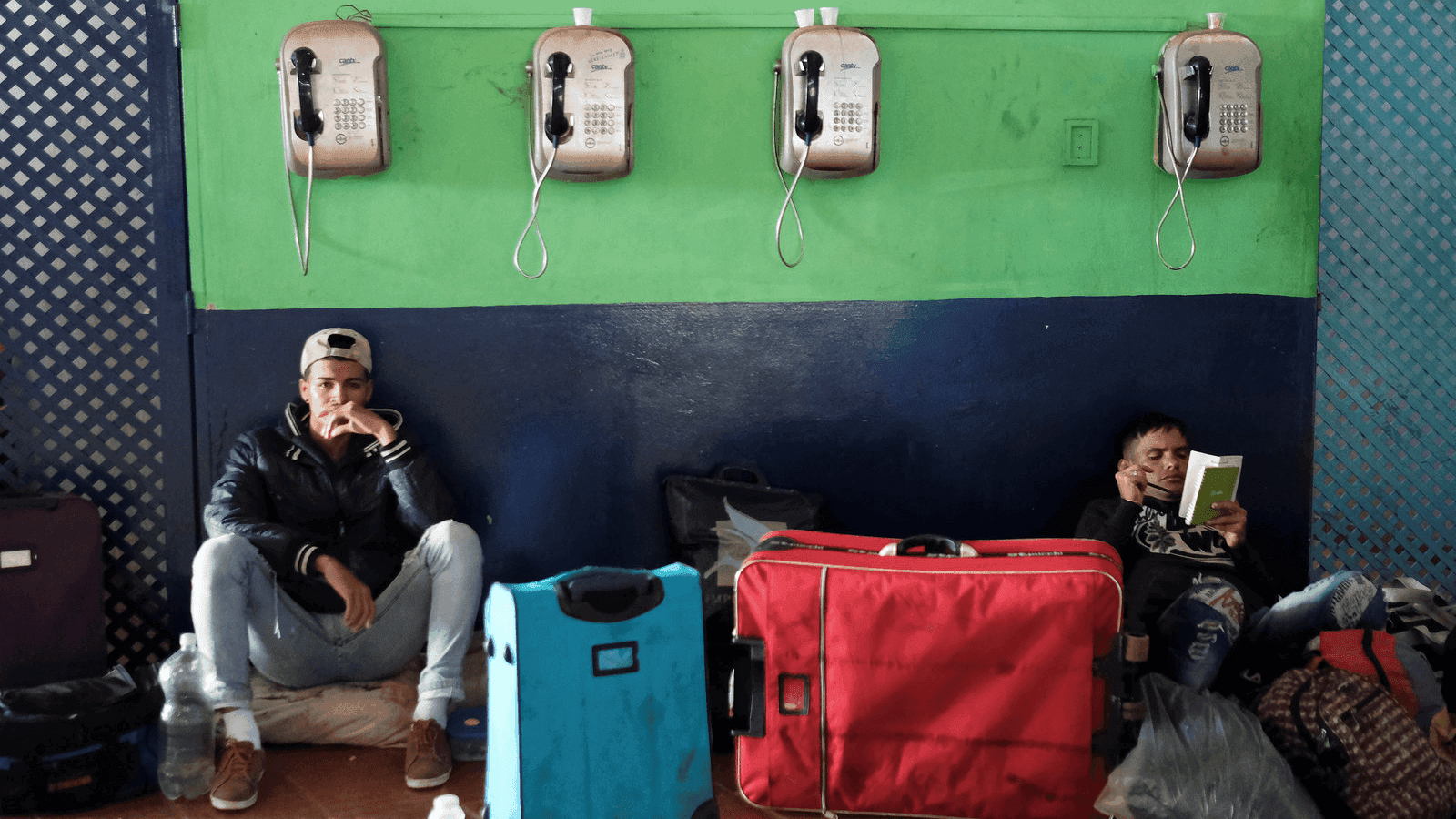Riot on Brazil-Venezuela border sends immigrants fleeing ahead of monetary reforms
Venezuelans rest next to their belongings at a bus terminal, after being expelled from the Pacaraima border control by Brazilian civilians, in Santa Elena, Venezuela, Aug. 19, 2018.
Fearful Venezuelan immigrants lined up in smaller numbers to enter Brazil on Sunday at the only border crossing between the two countries one day after violent protests by Brazilian residents drove hundreds back across the frontier.
The Brazilian army, which reinforces security at the Pacaraima border post, said 1,200 Venezuelans, including women and children, fled back into Venezuela on Saturday when residents went on a rampage after the stabbing and beating of a local shop owner.
The angry demonstrators destroyed tents used by Venezuelans to camp out in the street near the bus station and set fire to belongings the immigrants left behind.
“The Brazilians came running with sticks and bottles. They burnt all our things, even the children’s clothes,” said Joana Pérez, a 24-year-old mother holding a 6-month-old baby. “I’m scared. I don’t know where to sleep tonight or if there will be another attack. We lost everything. All I have is my ID card.”
The outburst was triggered by the severe beating of a shop owner by four alleged Venezuelan immigrants on Friday, the state government said. But police declined to comment and had still not found the suspects on Sunday.
Tens of thousands of Venezuelans have poured over the border into Roraima state over the last few years, fleeing economic and political turmoil in their country. The influx has overwhelmed the state’s social services and brought a rise in crime, prostitution and disease, and has sparked incidents of xenophobia, Brazilian government officials say.
“About 1,200 Venezuelans went back to their country yesterday. The flow has restarted today but evidently there are less people coming,” Colonel Hilel Zanatta, commander of the army operation at the border post, told Reuters.
A Reuters photographer who crossed into Venezuela on Sunday morning to the border town of Santa Helena de Uairén said the streets were crowded with thousands of people seeking to leave the country but fearful of a hostile reception in Brazil.
Venezuela’s government said the attacks on its citizens were fueled by xenophobia and called on Brazil to protect the immigrants and their belongings.
The Brazilian border state of Roraima repeated a call to close the border, which the federal government has refused to do for humanitarian reasons.
Instead, President Michel Temer announced after meeting with cabinet members on Sunday an increase from 31 to 151 in the contingent of soldiers helping keep order at the border and will speed up moving Venezuelan immigrants to other Brazilian states.
Currency reforms take effect today
Meanwhile, Venezuela on Monday slashed five zeros from prices as part of a broad economic plan that President Nicolás Maduro says will tame hyperinflation but critics call another raft of failed socialist policies that will push the chaotic country deeper into crisis.
Streets were quiet and shops were closed in Valencia due to a national holiday that Maduro decreed for the first day of the new pricing plan for the stricken economy, which the International Monetary Fund has estimated will have 1 million percent inflation by year-end.
The price change comes with a 3,000 percent minimum wage hike and tax increases meant to shore up government revenue and a plan to peg salaries, prices and the country’s exchange rate tied to the petro, an elusive state-backed cryptocurrency.
Economists say the plan announced on Friday is likely to escalate the crisis facing the once-prosperous country that is now suffering from Soviet-style product shortages and a mass exodus of citizens fleeing for nearby South American countries.
The chaos has become an increasing concern for the region. In recent days, Ecuador and Peru have tightened visa requirements for Venezuelans, in addition to the violence that drove hundreds of Venezuelan migrants back across the border with Brazil on Saturday.
Maduro, re-elected to a second term in May in a vote widely condemned as rigged, says his government is the victim of an “economic war” led by political adversaries with the help Washington and accuses the United States of seeking to overthrow him.
The United States has denied the accusations. But it has described the former bus driver and union leader as a dictator and levied several rounds of financial sanctions against his government and top officials.
Our coverage reaches millions each week, but only a small fraction of listeners contribute to sustain our program. We still need 224 more people to donate $100 or $10/monthly to unlock our $67,000 match. Will you help us get there today?
